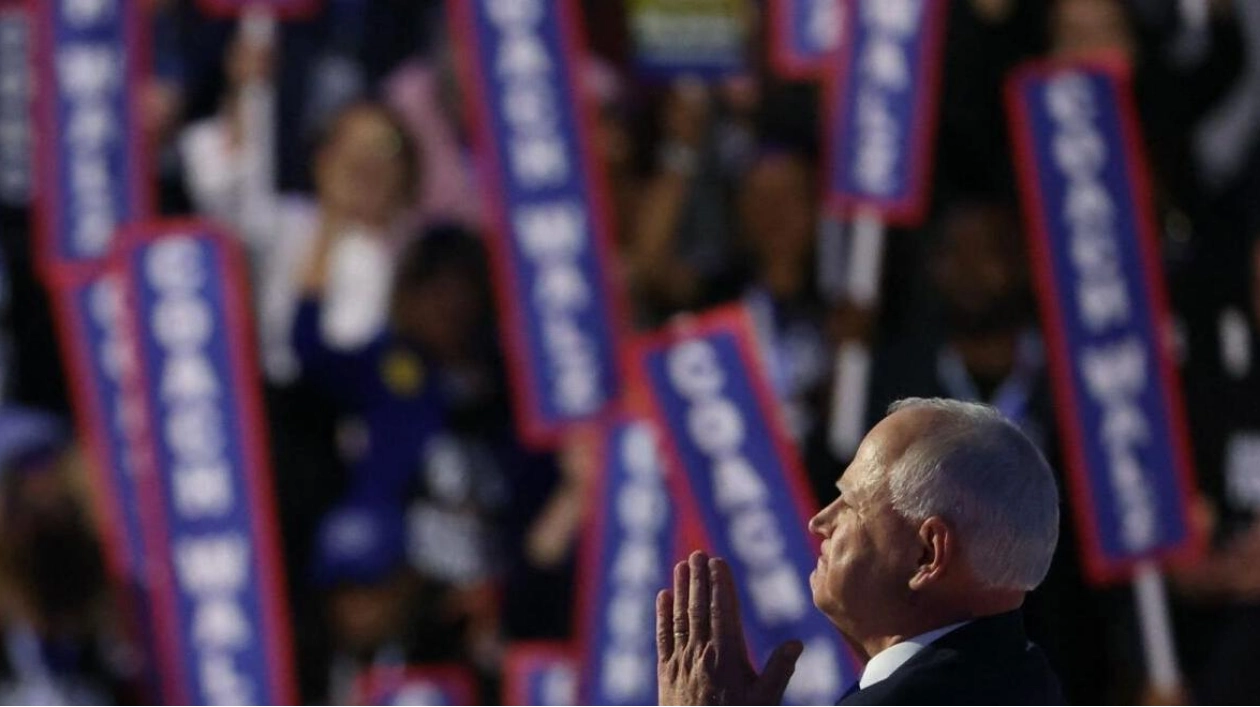During her interview with Tim Walz for the position of her running mate on the Democratic presidential ticket, US Vice-President Kamala Harris was met with a supportive inquiry from the Minnesota governor: "How can I help?" according to two sources familiar with the process. Walz's focus on aiding Harris rather than seeking power for himself was seen as a significant advantage. Since then, Walz has been actively promoting Harris's positive image on the campaign trail, praising her for restoring joy to US politics, despite criticism from Republican rival Donald Trump and his supporters. Democrats view Walz as a contemporary model of masculinity, comfortable with female leadership and using his position to advocate for women of color and reproductive rights, while also enjoying traditional male hobbies like hunting and fixing cars. Republicans, however, have criticized his military background, economic policies, and support for progressive social movements.
After Harris selected Walz, Trump's senior adviser Stephen Miller derisively referred to him as "Tampon Tim" on social media, mocking a law Walz enacted requiring schools to provide menstrual products for all students. The Trump campaign spokesperson, Karoline Leavitt, accused Walz of promoting California's liberal agenda. Nonetheless, Walz's backing of Harris, particularly as a Black woman, resonates with the political left amid a critical election focused on abortion rights. Younger women, in particular, are gravitating towards the Democratic Party, widening the gender gap in polls. Democratic strategists and supporters like Cameron Landin from Georgia and Sheletta Brundidge, a Minnesota podcaster, praise Walz for his supportive role, comparing him to a backing singer supporting a lead artist.
At the Democratic nomination acceptance speech, Walz expressed gratitude to Harris for her trust and invited him to join her campaign. He detailed the policies they would pursue, including tax cuts and personal freedom protections. Historians caution that Walz's unreserved support may require adjustments if Harris becomes the first female president, emphasizing the need for a vice-president capable of constructive criticism. Walz's demeanor contrasts with that of his Republican counterpart, JD Vance, who disparaged the leadership of childless women. Polls indicate a positive reception for Walz among Democratic supporters in key states, with women showing higher voter turnout and enthusiasm than men. Walz is seen by some as a return to traditional American masculinity, distinct from the hyper-masculine image promoted by Trump supporters.






